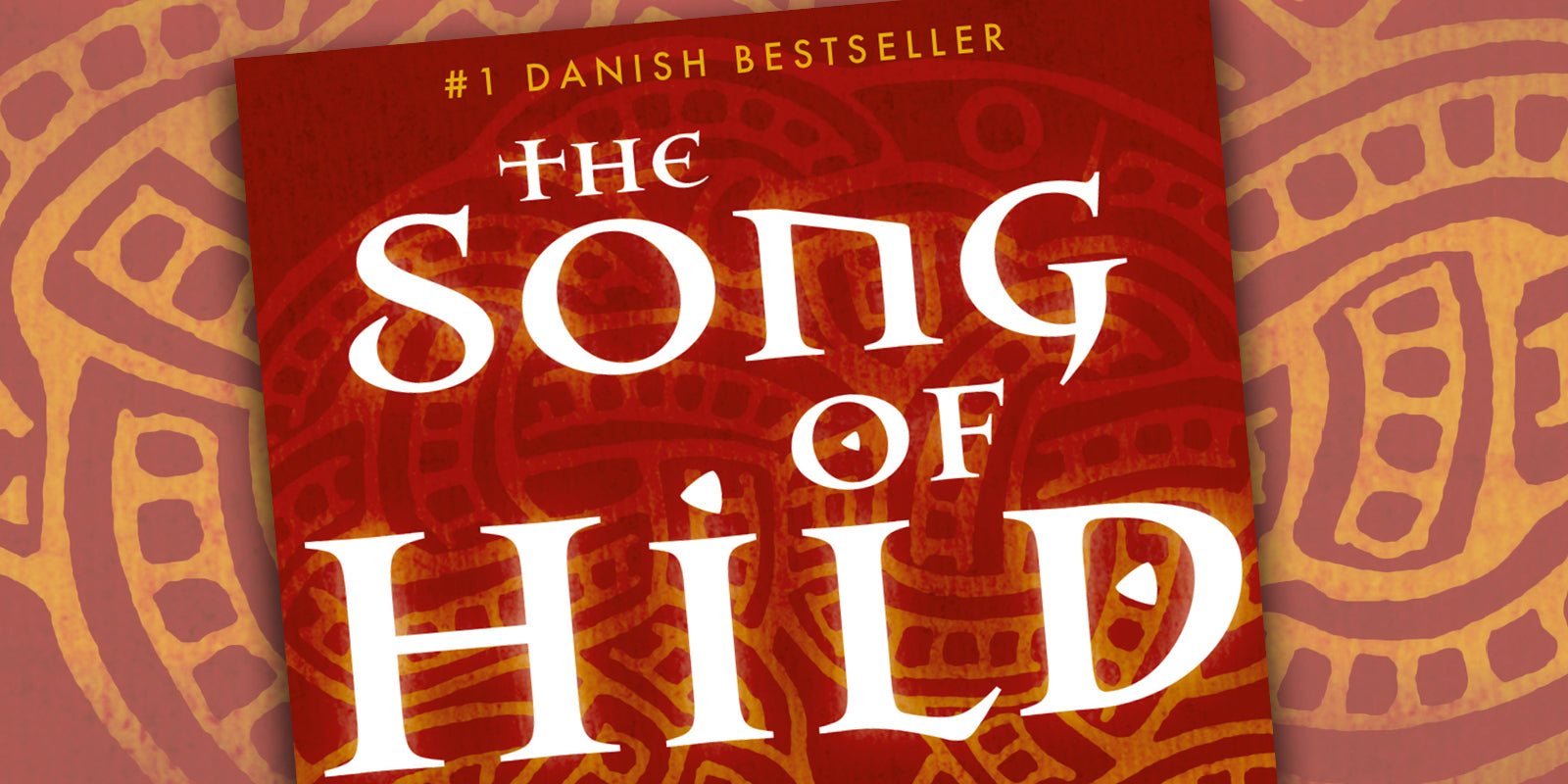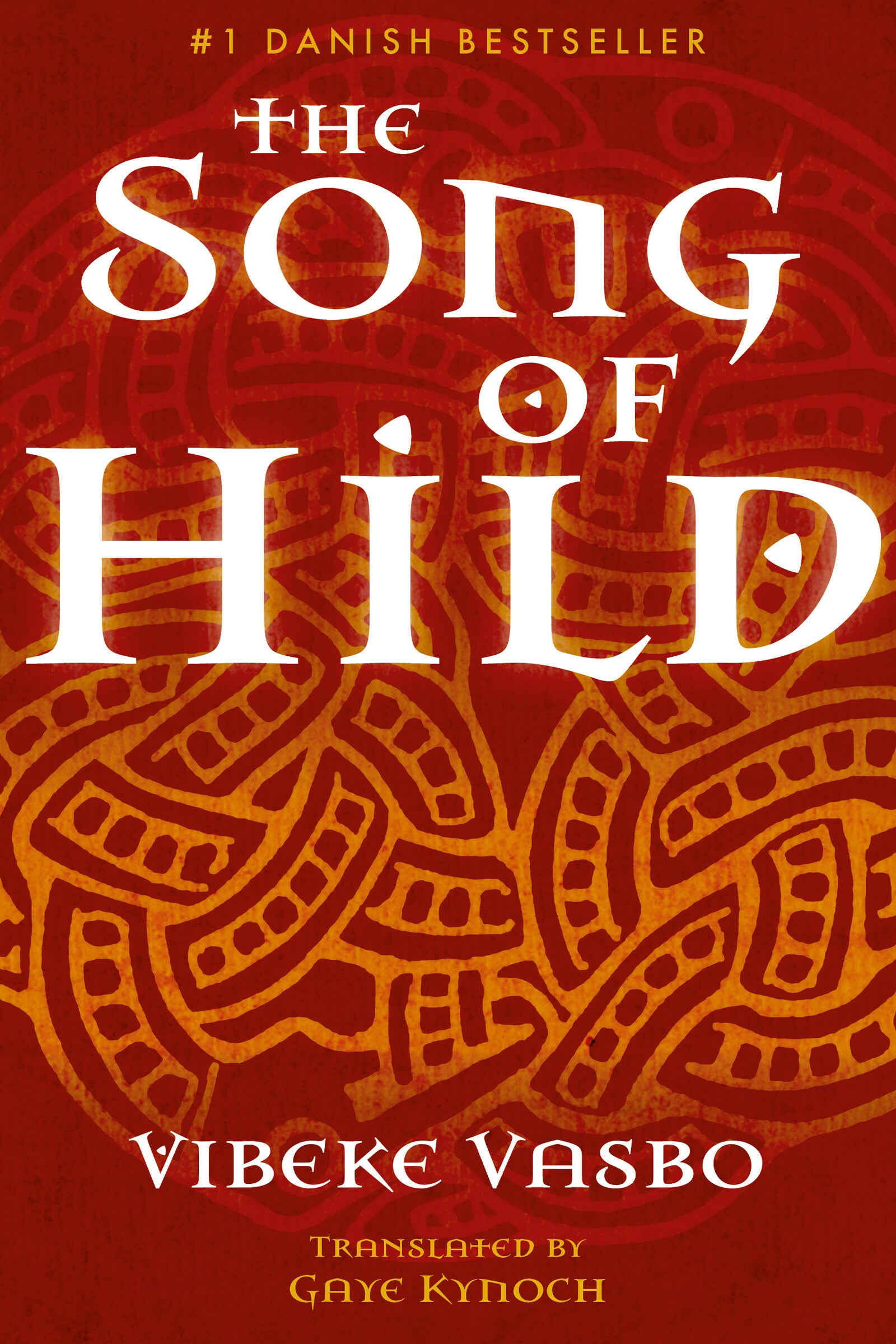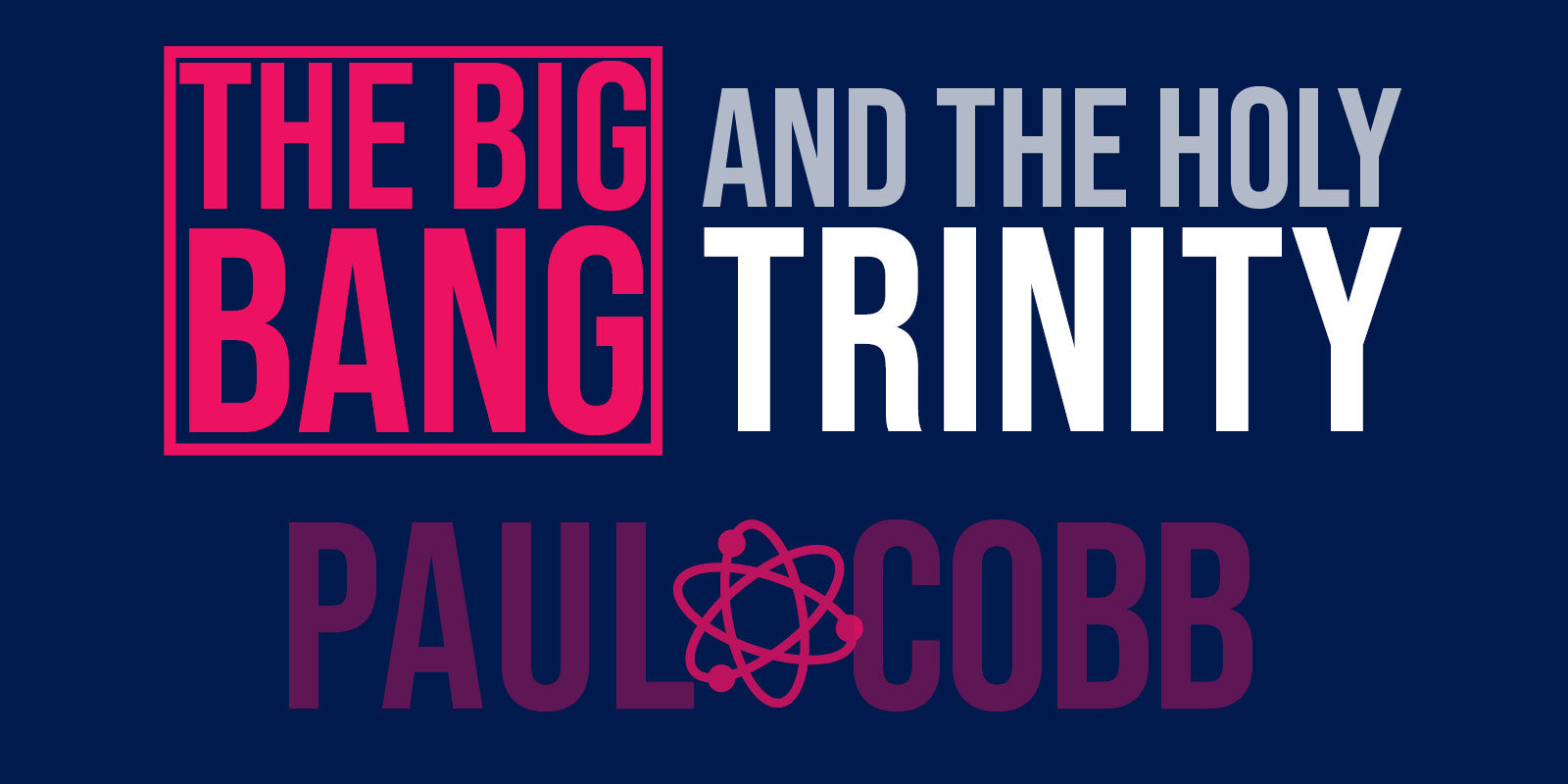 GUEST BLOG: Translators of fiction have a tremendously difficult task, yet their hard work often gets ignored. Here, Gaye Kynoch reveals some of the challenges and joys of translating Vibeke Vasbo’s bestselling novel The Song of Hild from the original Danish.
GUEST BLOG: Translators of fiction have a tremendously difficult task, yet their hard work often gets ignored. Here, Gaye Kynoch reveals some of the challenges and joys of translating Vibeke Vasbo’s bestselling novel The Song of Hild from the original Danish.
What a vibrant story Vibeke Vasbo has woven—and what a challenge to translate! Although I could see, hear, smell, taste and feel Hild’s world in every word, and could watch the characters living so very vividly in all their convincing seventh-century-ness, my task was to bring them home, as it were, to a twenty-first century in which The Song of Hild unfolds just as persuasively in English as it does in Danish.
And that, surely, is the core of my work as a translator: how to transfer a Danish word, sentence, paragraph—book—into English, making sure it is an exact-as-can-be representation of the original meaning, tone, intention, setting and authorial voice.
The Song of Hild is a Danish book about early British history; an outsider’s gaze on how pieces of the European jigsaw started to fall into place in these isles. The book was a huge success when first published in Denmark. Danes are generally very interested in and well-informed about the UK, so a colourful story about political, religious and personal machinations in the pre-Viking multicultural seventh-century British Isles and wider Europe proved highly popular.
British authors write about the history of other nations—we are all intertwined, after all, and an objective gaze and pen can only add to understanding. Maybe we should all take a year or two when we only read “outsider” versions of what we see as “our” history! I wonder if that would shift our perspectives slightly, or significantly? The world does not look the same from every vantage point. Translation certainly has a major role to play in cultural understanding, but the UK publishing industry hasn’t always been strenuously energetic when it comes to promoting translations. The situation has greatly improved in recent years, and much work is being undertaken to study, analyse, support, promote and publish literary works in translation, but we still have a long way to go . . . Writing a persuasive funding application remains a very necessary translating skill! But gone (hopefully) are the days when an editor asked me if I translated to earn a “little pin money”. He obviously thought I had married a Dane and needed a gentle hobby to keep me occupied. Amazing.
I was living in London when Vibeke published Hildas sang. It was hard to leave the book when work called—what might have been happening while I was away? Non-Danish-speaking friends wanted to read it, but couldn’t. I translated a few excerpts, and we tried to find a UK publisher. In those days, this was done via posting a letter, enclosing the excerpts and a reader’s report in a little booklet we had printed. Very positive feedback, but no contract! Over the years, we talked about trying again—Vibeke has always wanted The Song of Hild to sail back to the UK. She researched the book while living in Hull, visited all the locations, studied all the material, and spent seven years staying true to these sources while creating what could have happened. And then, a few years ago, I read about Sacristy Press and their policy of uncovering “hidden gems from new talent and old hands”. I sought out Richard and Thomas at the London Book Fair, and our collaboration began! What a stroke of luck—and what a joy it has been to work with Sacristy. This time via email, phone calls and the internet: instantaneous and efficient. We meet up face-to-face too, which has been another pleasure of the process.
And then Hild’s world had to be rendered in English. How to create a seventh-century “feel” on a twenty-first-century computer? Follow the lead of the authorial voice, I would say. Practical choices had to be made at the outset—such as spelling of names and place names, all found in many versions depending on which history book or document you read—and then you have to stick with those choices. The world created here is, of course, a work of fiction, and as long as that world is consistent in its choices, then it is a viable picture, a workable world.
The Danish is modern without being anachronistic; the otherness of a seventh-century life is performed via a slight shift, a slight difference in the use of language. We don’t know what these characters sounded like, how they spoke, what they said. But Vibeke has created a dense and rich visual world of the period, into which the language fits. No “thee”, “ye” or “thou”, but a subtle twist of tone, a slight formality, and a sense of wonder and inquisitiveness in all they say, depicting the dimension of “long ago”. The vignettes at the head of each chapter—designed by Eva Wilson from original Anglo-Saxon patterns—set the scene for the thought processes within this visual world. The people in The Song of Hild do not, of course, know what we know today; they are constantly trying to work out what everything is all about. But at no point do they appear ignorant or stupid. All their lines of thought have their own logic. Today we can google anything we want to know: we don’t have to try to work out what a solar eclipse is all about, how plants propagate, or who on earth could have erected this enormous building now lying in ruins. What would we make of a fossil if we didn’t know what it is? And which god would we think had designed it all and now directed proceedings? (We’re still working on that one!) The reader is drawn into the characters’ speculations in a language that illustrates the logic of their reasoning without sounding daft, anachronistic, condescending, too modern or too ancient—and this is all done with a little adjustment of tone via word order, rhythm, scepticism expressed rationally and not bumpkinly. Their whole world is so very alien to ours, and yet the people walked these same islands, sailed the same seas, and are our ancestors. Fiction based on the sources can flesh out our history. The past might be a foreign country, but it’s where we come from and we speak its language.
It’s a tricky balance in historical fiction to find a tone that conjures up the period without becoming a modern re-enactment or an anachronistic re-enactment on the fictional field. Vibeke has created a highly convincing scenario in a persuasive language that neither underscores nor ignores the fact that the characters are “speaking” nearly 1,400 years ago! This is a novel, not a history book. Historians research, discuss, dispute. Vibeke Vasbo has researched, discussed and come to an agreement: from her vantage point, this is the story she found compelled to tell, and it is told in the voice with which she chose to tell that story. My task has been to re-tell that particular story in the “English version” of this voice!
The Song of Hild is a gritty, powerful story about the prominent role women played in the spread of Christianity in seventh-century Britain. Get your copy of this “bestseller of great literary quality” today for just £11.99.











